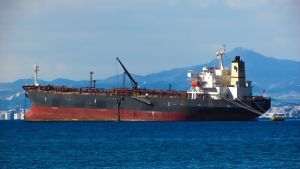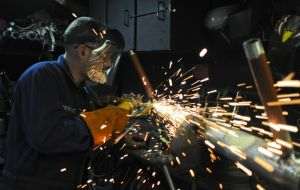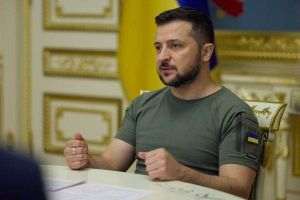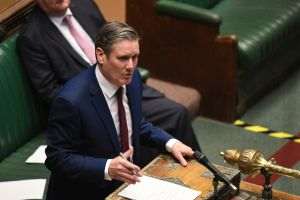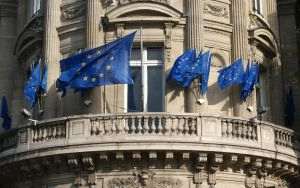The European leaders are expected to grant, at the European Council Summit today and tomorrow, Ursula von der Leyen a new mandate as president of the European Commission, a mandate that would be confirmed by the vote of the European Parliament. According to an agreement reached on Tuesday between the six negotiators regarding the top positions in the European Union, Ursula von der Leyen would become the head of the European Commission again, the Portuguese Antonio Costa - the president of the European Council and the Estonian Kaja Kallas would become the High Representative of the EU for Foreign Affairs and Security Policy. The six negotiators are Greek Prime Minister Kyriakos Mitsotakis and Polish Prime Minister Donald Tusk (for the European People's Party), Spanish Prime Minister Pedro Sanchez and German Chancellor Olaf Scholz (for the Socialists), as well as French President Emmanuel Macron and Dutch Prime Minister Mark Rutte (for Renew Europe). .
The summit of these days is expected to be a tense one, because Giorgia Meloni, the prime minister of Italy, whose party is currently part of the third political group constituted at the level of the Parliament, was not included in the negotiations regarding the occupation of top positions at the European level European, following the June 6-9 elections. But Meloni was not part of the negotiating team, because the Socialists and those from Renew Europe threatened not to support Ursula von der Leyen for the head of the European Commission, if the prime minister of Italy, one of the promoters, is also invited to the negotiating table the far-right movement in the European Union.
At today's summit, the Hungarian Prime Minister Viktor Orban is also expected to make a discordant note, who wrote on social networks, after the news about the agreement on the top positions in the EU appeared, that this document "concluded by the EPP with the socialists and liberals is against everything that the European Union is based on", being an element of division between European citizens.
However, the agreement reached by the negotiating team for the top European positions reflects the political majority in the European Parliament, with her supporters saying that Ursula von der Leyen will get more than 400 votes in the European Parliament, although the EPP, S&D and Renew Europe they hold a total of 399 seats out of the 720 MEP seats.
Unlike the controversies regarding Ursula von der Leyen, regarding the incumbents of the positions of President of the European Council and High Representative of the EU for Foreign Affairs and Security Policy, things are clear: the two will be appointed following their approval at the summit from these days.
• Implementation of the Green Deal, relegated to the background in the new strategic agenda
On the agenda of the European Council Summit, which takes place today and tomorrow in Brussels, there is also the adoption of the Strategic Agenda 2024-2029, the situation in Ukraine, the situation in the Middle East, common security and defense, competitiveness and other aspects.
The Strategic Agenda 2024-2029 is a political plan that sets the direction and objectives of the EU and would be based on three pillars: a free and democratic Europe; a strong and secure Europe; a prosperous and competitive Europe. At the European Council summit, leaders are expected to adopt a roadmap for future work on internal reforms to be undertaken by the EU to meet its long-term ambitions and strengthen its ability to deal with increasingly challenging the most complex. This activity will be carried out in parallel with the EU enlargement process.
A draft of the agenda, provided by political sources to Euractiv.com, shows that the document will put a strong emphasis on competitiveness, security and defence, migration and the rule of law, while the implementation of the Green Deal agenda - which was strongly supported by Ursula von der Leyen - will pass into the background. However, the source said the document did not provide details on how to finance the new priorities - such as the idea of a new joint European debt to fund increased defense needs - and instead only called for "innovative options".
European leaders will also discuss increasing the EU's overall defense readiness and capability through the defense industry these days. In this context, the options for mobilizing more financing for the European defense industry will be analyzed, given that the needs would amount to 500 billion euros.
The Commission's proposal to "explore all options for mobilizing finance" for the defense industry and increase its production to match wartime needs and provide the industry with the prospect to invest is long awaited. Among the "creative solutions", the focus is mostly on the idea of loan cash from the financial markets - by issuing Eurobonds, but for now no decision has been taken as the Netherlands is reluctant to take such a step.
Journalists from Euractiv.com point out that it is still not clear how much money the EU Executive considers necessary to develop the defense industry in the EU bloc, but they quote a diplomat from the French Presidential Administration who claims that "various figures are presented , such as 400 or 500 billion euros", but mentions that "a needs assessment is expected (...), and the specification of some examples of the capacity gaps to be financed".
An EU diplomat told the cited source that, according to the European Commission's estimates, more than 500 billion euros are needed to expand both the European defense industry (400 billion euros) and the Ukrainian one (110 billion euros) over the next decade.
The current commissioner for the internal market, Thierry Breton, has stated, however, on several occasions that 100 billion euros are needed for the development of the European defense industry.
The problem, however, is how the necessary funds will be found. While some states - France, Germany - want to issue Euro-bonds, others refer to the need to generalize a system of joint purchases, on the principle of purchasing anti-Covid 19 vaccines during the pandemic, and other states would like to use the capital private through the Capital Markets Union or ensure that all ESG (environmental and social governance) criteria align with the need for defense investment so that the European Investment Bank is less reluctant to lend to the defense industry.
At the summit, EU leaders will also discuss military support for Ukraine, including sending ammunition and missiles, under the European Peace Facility. Moreover, at the beginning of the meeting, the current situation on the fronts in Ukraine will be presented to them by President Volodymyr Zelensky, invited to participate in the summit by the current President of the European Council, Charles Michel.
European leaders will also discuss the situation in Gaza and humanitarian assistance, regional developments in the West Bank and Lebanon, an immediate ceasefire in the region and the unconditional release of hostages taken by the Hamas group.
• Fierce fight for European commissioner positions
According to an analysis carried out by Euractiv.fr, unlike the 2019-2024 legislature, in which a large number of commissioners benefited from a second mandate but with a different portfolio, in the period 2024-2029, most members of the next college of commissioners will be newcomers to the European Commission. This means that newcomers will have to, in addition to familiarizing themselves with their portfolios, quickly learn to master administrative complexity and navigate between national and European interests. The quoted source says that Ursula von der Leyen is expected to reshuffle the portfolios from the current configuration and decide on the names of the future vice-presidents of the European Commission.
The most influential countries, i.e. the founding member states of the European Union, generally have the most important portfolios or can choose them, while smaller member states are often assigned less important portfolios, although there are exceptions, such as in the last legislatures, it was the case of Romania, which benefited from the regional policy portfolio and the transport portfolio. After the commissioners are appointed, they have to go through hearings before the various committees of the European Parliament, where they can be approved or rejected. If a candidate is rejected, the Member State concerned must nominate another person.
According to the analysis carried out by the cited source, among Romania's potential candidates for the position of European Commissioner are Luminiţa Odobescu - the current Minister of Foreign Affairs, Adina Vălean - the current European Commissioner for Transport, the European Deputy Siegfried Mureşan and Klaus Iohannis - if he does not get a other important function at European or Euro-Atlantic level. According to French journalists, our country wants the future European commissioner from Romania to hold a portfolio related to the economy or the expansion of the European Union, or to deal with defense or combating disinformation.







